*Mumbai City FC brush past Chennaiyin in Kalinga Super Cup*
Sports

BHUBANESWAR : Lallianzuala Chhangte delivered a captain’s performance with a dazzling brace as Mumbai City FC breezed past Chennaiyin FC 4-0 in a dominant Round of 16 encounter of the 2025 Kalinga Super Cup at the Kalinga Stadium on Wednesday, April 23, 2025. The first half ended 1-0.
Nikolaos Karelis (43’) scored the first goal for Mumbai City FC at the stroke of half time before Lallianzuala Chhangte (64’, 86’) stole the show with his two goals. Substitute Bipin Singh (90’) capped off the win with a strike in the last minute.
Mumbai City FC, still smarting from a heavy 0-5 defeat against Bengaluru FC in the ISL knockout rounds, responded in emphatic fashion to book their place in the Kalinga Super Cup quarter-finals. Their opponents, Chennaiyin FC, had finished a disappointing 11th in the ISL, and their Super Cup journey came to an end after another underwhelming performance.
From the opening whistle, Mumbai City were on the front foot. The attacking trio of Chhangte, Karelis, and Jorge Ortiz looked sharp, with intricate passing and excellent movement that repeatedly exposed gaps in the Chennaiyin backline.
Chhangte nearly opened the scoring early on when he latched onto a defensive error, glided past his marker and unleashed a shot towards the far post only to see it come back off the woodwork.
Chennaiyin struggled to settle into the game and were denied what looked like a potential penalty after Daniel Chima Chukwu was brought down in the box by Vikram Pratap Singh, but the referee waved play on.
The breakthrough finally came in the 43rd minute. A half-cleared corner fell kindly to Hitesh Sharma, who lofted a teasing ball into the box. Chennaiyin goalkeeper Mohammad Nawaz was a tad late in coming out to affect a save and Nikolaos Karelis made no mistake, nodding home from close range to put the Islanders ahead at the break.
After the interval, Mumbai City resumed their control. Ortiz and Chhangte combined beautifully to carve open chances, and the latter came close again before Chennaiyin nearly found an equaliser. Lukas Brambilla danced past Mumbai City goalkeeper TP Rehenesh and seemed destined to score, but Mehtab Singh’s goal-line clearance denied Chennaiyin a lifeline.
That moment proved to be the turning point. In the 64th minute, Ortiz once again danced past his marker and slipped Karelis in behind. The Greek forward’s effort across goal wasn’t the cleanest, but Chhangte was there at the far post to tap it into an open net and double Mumbai City’s lead.
Chhangte struck again in the 86th minute with a touch of class. Ortiz played a sublime outside-of-the-boot flick to send him through. The winger cut inside on his favoured left foot and curled a low shot past the goalkeeper to make it 3-0.
In the last minute of the game, Chhangte turned provider. A delicate scooped pass found Bipin Singh in the box, who brushed aside pressure from Mandar Rao Desai and calmly slotted home to complete the rout.
Lallianzuala Chhangte was presented the Kalinga Player of the Match award
Why your resume (mostly) doesn’t matter - Nishtha Desai
TEDx Talk | Youtube Mr. Sarabjeet Sachar, founder and CEO of Aspiration Jobs, recently gave an inspiring TEDx talk during TEDxGoldenBridge Studio, sharing new ideas on how value-based connections play a critical role in professional development. The speaker told us that success often does not hinge on resumes or traditional job applications, but rather on building valuable, meaningful relationships that position one on the right path for opportunities to knock.
TEDxGoldenBridge Studio, themed “Semicolon; Pausing to Connect,” brings together a diverse array of speakers and curators to explore the power of intentional pauses and meaningful connections in our lives; has the reputation for providing a platform to ideas that are worth spreading, gave the best platform to this thought-provoking presentation. The proceedings were efficiently planned by Harsh Thakkar (Licensee), Sahaj Tyagi (Co-licensee), Siya Kachhela (Head Curator), Vraj Dangarwala (First Curator), and Yug Desai (Post Production Lead) so that every moment of the event was memorable for everyone in attendance.
The author, Nishtha Desai emphasizes the significance of forming genuine relationships during one's career path. According to her, the emphasis must be on proving oneself, making personal and professional values align with the company mission, and being around people with the same intentions. For her, a career founded on sincere connections is more fulfilling and successful than one focused only on resumes and automated processes.
Crux of the Topic
In his presentation, Sarabjeet Sachar brought forth the revolutionary idea of value-based relationships, breaking from the conventional dependence on resumes in job searching. He identified how the dependence on resumes generated by artificial intelligence and generic keywords tends to derail the recruitment process, making it increasingly difficult for the candidates to get noticed. The actual key to professional success, he contended, is being a problem-solver, not merely a set of credentials.
Details
It started at the age of 21, when a newly graduated student was commuting on a local train in Mumbai. Enthusiastically talking about a dream to have a career in sales, this person was excited about the prospect of meeting people, knowing their problems, and providing tailored solutions. Unaware to them, a regional sales manager from a major pharmaceutical firm happened to overhear the conversation. Influenced by their passion and commitment in their words, the manager went up to the graduate and gave them his business card, inviting them in for an interview. No resume was required; it was the passion and commitment that got them the job.
This was the starting point of a successful career in sales, where the person rose through the ranks to senior levels in well-known companies like Times of India, Indian Express, The Hindu, India Today, and ZTV Network. In all these shifts, the emphasis remained on demonstrating their worth and love, instead of talking of a resume.
The central takeaway here is that the traditional resume may open doors, but it’s the authentic value you bring that will truly walk you through them. Research and preparation are key. Much like a business consultant, job seekers should approach potential employers by understanding their needs and positioning themselves as solution providers. This requires a shift in mindset—viewing the job search process not as a race to submit applications, but as an opportunity to build meaningful, value-driven connections.
The presentation touched on some of the real-life scenarios in which professionals constructed their careers by intentionally concentrating on value-based network construction. Sarabjeet Sachar narrated examples of people such as Amit and Simon, who were able to switch into new fields and gain leadership positions by matching their capabilities with the precise requirements of their potential employers.
This creative strategy is opposite to the conventional thinking of writing a resume based on a job description. Sachar emphasized that employers are not seeking flawless resumes but those who can provide solutions to their issues. By establishing these connections via networking and reciprocal value, professionals can tap into job opportunities that are not listed on conventional job boards.
Conclusion
As Sarabjeet Sachar finished speaking, he challenged the audience to change their career development mindset. Rather than just concentrating on resumes, professionals need to work towards building deep, genuine relationships founded on common values. These will open doors to opportunities and drive career progression in a more profound manner.
The TEDxGoldenBridge Studio event gave a new insight into job seeking and career development, urging working professionals to aim at establishing value-based relationships to thrive in the competitive job market of today.
*Vision 2028 fourth phase begins with U-16, U-19 boys camps*
Sports

Khabar kolkata sports Desk: The fourth phase of Vision 2028 got underway today at the JU 2nd Campus Ground, Salt Lake, with the Bengal Under-16 and Under-19 boys attending the camps.
Bengal’s Manoj Tiwary will be the batting coach, the bowling department will be guided by Ashok Dinda.
Other coaches Dattatreya Mukherjee, Ajay Verma and Arindam Das also guided the boys.
The fourth phase of the camp is divided into two sessions every day.
The opening day’s session began with Tiwary and Dinda delivering inspirational and motivation words to the young boys. The duo told the boys to use the camp as a learning experience.
The batters took their stance at the crease and the bowlers prepared for their run-up, by practicing their bowling action. The coaches looked at the proceedings and watched the boys’ practice with hawk eyes. As the session went on, the coaches talked to the talents individually.
The short-term goal of Vision 2028 will be to get the various age group squads ready for the domestic season by improving their skills while the long-term goals will be to nurture the future talents and make them fit for various Bengal age group squads.
Pic Courtesy by: CAB
तबाही के बाद शेयर मार्केट में लौटी रौनक, सेंसेक्स 1100 अंक चढ़ा, निफ्टी भी उछला

#share_market_jumps_sensex_and_nifty_open_on_green_line
शेयर मार्केट में रौनक लौट आई है। सेंसेक्स 1100 अंक बढ़ा है तो निफ्टी 22 हजार 500 अंक पर खुला है।आज मंगलवार को मार्केट में आई बढ़त ने निवेशकों को मुस्कुराने का मौका दे दिया। शेयर मार्केट में यह तेजी एशियाई बाजार में बढ़त के कारण आई है।इससे पहले सोमवार को मार्केट बुरी तरह से धड़ाम हुआ था।
शेयर बाजार में सोमवार के दिन भयंकर बिकवाली के बाद आज यानी मंगलवार को मार्केट में उछाल देखने को मिला। दलाल स्ट्रीट पर सेंसेक्स की 30 कंपनियों में 29 में तेजी दिखी।मंगलवार को सेंसेक्स 1175.90 की बढ़त के साथ 74,313.80 अंक पर खुला। वहीं निफ्टी में भी तेजी आई। यह 390 अंक से ज्यादा के साथ 22,446.75 पर खुला। इससे पहले सोमवार को मार्केट में सेंसेक्स 2226.79 अंकों की गिरावट के साथ 73137.90 पर बंद हुआ था। वहीं निफ्टी में भी 900 अंकों से ज्यादा की गिरावट आई थी। लेकिन मंगलवार को आई तेजी ने निवेशकों के डर को काफी हद तक दूर किया।
इससे पहले वैश्विक व्यापार युद्ध की चिंता और अमेरिका में मंदी की बढ़ती आशंकाओं के बीच सोमवार को पूरी दुनिया के शेयर बाजार में भारी बिकवाली दिखी थी। भारतीय बाजार भी इससे अछूता नहीं रहा था और सेंसेक्स व निफ्टी जैसे प्रमुख सूचकांक बड़ी गिरावट के साथ बंद हुए थे। इस दौरान 30 शेयरों के बेंचमार्क सूचकांक सेंसेक्स में बीते10 महीनों में एक दिन की सबसे बड़ी गिरावट दर्ज की गई थी।
इस दौरान एशियाई बाजारों में बढ़ोतरी देखी गई। जापान का निक्केई 225 शेयर सूचकांक एक दिन पहले 8 प्रतिशत गिरा, लेकिन मंगलवार को इसमें 5.5 प्रतिशत की तेजी देखी गई। दक्षिण कोरिया के कोस्पी में भी 2 प्रतिशत की वृद्धि हुई। न्यूजीलैंड और ऑस्ट्रेलिया के बाजारों में भी तेजी देखी गई।
Ghibli ट्रेंड ने इंटरनेट पर मचाई धूम, OpenAI के CEO ने जानिए क्या दी अहम जानकारी?

डेस्क:–इन दिनों सोशल मीडिया पर एक नया ट्रेंड देखने को मिल रहा है और वह है "Ghibli" इमेज का। सेलिब्रिटी, क्रिकेटर और राजनेता जैसे कई बड़े नामों की Ghibli स्टाइल इमेज इन दिनों वायरल हो रही हैं। ये इमेज सोशल मीडिया के लगभग सभी प्लेटफॉर्म्स पर छाई हुई हैं और लोग इनका जमकर इस्तेमाल कर रहे हैं।
हालांकि इस बढ़ते ट्रेंड के कारण OpenAI की सर्वर पर दबाव बढ़ गया है जिससे कंपनी को कुछ समस्याओं का सामना करना पड़ रहा है। इसके चलते OpenAI के CEO Sam Altman ने खुद आगे आकर एक महत्वपूर्ण अपडेट साझा किया। उन्होंने बताया कि Ghibli इमेज की पॉपुलैरिटी की वजह से कंपनी को सर्वर पर भारी दबाव का सामना करना पड़ रहा है और इससे कुछ उत्पादों की लॉन्चिंग में देरी हो सकती है।
Sam Altman ने अपने X (पूर्व Twitter) अकाउंट पर एक पोस्ट के जरिए बताया कि Ghibli इमेज की बढ़ती मांग और पॉपुलैरिटी के कारण सर्वर पर काफी दबाव बन गया है। इसके चलते OpenAI को कुछ नई सुविधाओं और प्रोडक्ट्स को लॉन्च करने में देरी हो सकती है। साथ ही उन्हें अपनी सेवा में कुछ स्लोनेस का भी सामना करना पड़ सकता है। Altman ने यह भी बताया कि कुछ मामलों में Ghibli इमेज तैयार करने में वक्त भी लग रहा है और कभी-कभी 1 मिनट तक का समय भी लिया जा रहा है।
OpenAI के CEO Sam Altman ने स्पष्ट किया कि इस दबाव को मैनेज किया जा रहा है और सब कुछ नियंत्रण में है। हालांकि Ghibli की बढ़ती मांग के कारण कुछ नई रिलीज़ में देरी हो सकती है और यूज़र्स को स्लो सर्विस का सामना करना पड़ सकता है।
*Ghibli क्या है?*
Ghibli एक खास प्रकार की आर्ट स्टाइल है जिसमें पेंटिंग जैसी सॉफ्ट कलर टोन, बेहतरीन डिटेलिंग और मैजिकल थीम का इस्तेमाल होता है। यह इमेजेज देखने में बहुत सुंदर और आकर्षक लगती हैं। OpenAI के नए टूल्स की मदद से अब इस खास आर्ट स्टाइल को आसानी से रीक्रिएट किया जा सकता है।
*Ghibli का जापान से कनेक्शन*
Ghibli स्टाइल की शुरुआत जापान की एक मशहूर एनीमेशन कंपनी से हुई थी जिसे "Studio Ghibli" कहा जाता है। इस स्टूडियो की स्थापना प्रसिद्ध फिल्म निर्माता हयाओ मियाजाकी ने की थी। Studio Ghibli को अपनी शानदार फिल्मों जैसे Spirited Away, My Neighbor Totoro और Kiki's Delivery Service के लिए जाना जाता है। इन फिल्मों का हर दृश्य Ghibli स्टाइल में होता है जो दर्शकों को एक जादुई और कल्पनाशील दुनिया में ले जाता है।
वहीं इस प्रकार Ghibli ट्रेंड अब इंटरनेट पर एक नई हलचल मचा रहा है और OpenAI की सर्वर पर दबाव भी बढ़ा है। हालांकि Sam Altman ने आश्वासन दिया कि कंपनी इस समस्या पर काम कर रही है और जल्द ही इस पर काबू पा लिया जाएगा।
चैटजीपीटी ने घिबली स्टाइल फोटो जेनरेट करने पर लिया बड़ा फैसला, यूजर्स के लिए बुरी खबर
#openai_changed_the_rules_for_ghibli_style_photos
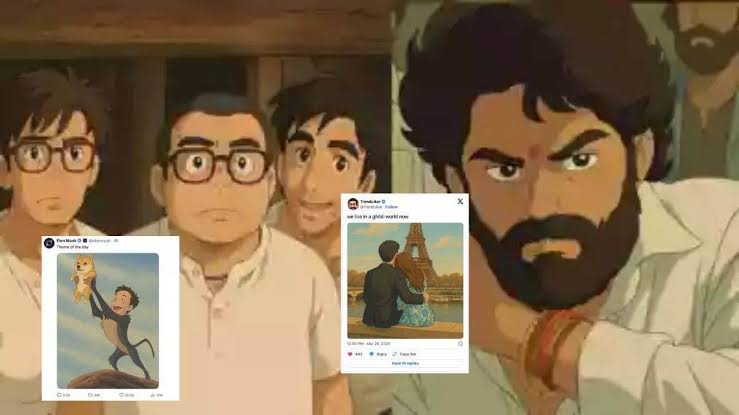
ओपनएआई के चैटजीपीटी ने एक नया टूल लॉन्च कर इंटरनेट पर तूफान खड़ा कर दिया। हालांकि, अब इसने कंपनी की ही नींद उड़ा दी है। इन दिनों सोशल मीडिया पर घिबली स्टाइल की तस्वीरें की भरमार देखी जा रही हैं। सोशल मीडिया यूजर्स को अब इन तस्वीरों के माध्यम से अपने आप को देखना पसंद करने लगे लगे हैं। पिछले 2-3 दिन से सोशल मीडिया पर घिबली-स्टाइल फोटो की बाढ़ आई हुई है। इसी बीच ओपनएआई के चैटजीपीटी ने अपनी स्टूडियो घिबली-स्टाइल की तस्वीरों को लेकर अपनी नीति में अहम बदलाव किया है।
नए नियम के मुताबिक अब यूजर्स घिबली-स्टाइल की तस्वीरें बनाने के लिए रियल वर्ल्ड की तस्वीरों का उपयोग नहीं कर सकते। इसका साफ-साफ मतलब है कि अब आप ओपनएआई के चैटजीपीटी के माध्यम से कोई भी असल व्यक्ति या तस्वीर को देखकर घिबली-स्टाइल में तस्वीर नहीं बना सकता। जब भी आप अब चैटजीपीटी के माध्यम से तस्वीर बनाने की कोशिश करेंगे तो इसके लिए चैटजीपीटी इमेज जनरेटर ने एक नया संदेश दिखाना शुरू किया है, जिसमें कहा गया है कि अब वह किसी असल व्यक्ति की तस्वीर से घिबली स्टाइल की तस्वीर नहीं बना सकता।
फ्री और पेड यूजर्स पर लगाई लिमिट
यही नहीं, चैटजीपीटी की टीम इसके अलावा भी कुछ बदलाव कर रही है। ओपनएआई के सीईओ सैम आल्टमैन ने बताया कि चैटजीपीटी के फ्री यूजर्स को अब हर दिन 3 इमेज बनाने का मौका मिलेगा। हालांकि, ये एक टेंपरेरी सॉल्यूशन है और टीम इस पर काम कर रही है। अब एक दिन में चैटजीपीटी के फ्री यूजर्स लिमिटेड फोटोज ही बना सकेंगे। इसमें पेड यूजर्स को भी लिमिट का सामना करना पड़ेगा।
फ्री यूजर्स को करना होगा इंतजार
इसके अलावा, ओपनएआई ने अपनी इमेज जनरेटर सेवा को मुफ्त यूजर्स के लिए रोलआउट करने में देरी की घोषणा की है, क्योंकि इसे लेकर अधिक मांग आ रही है। ओपनएआई के सीईओ सैम ऑल्टमैन ने ट्विटर पर कहा कि इस सेवा की लोकप्रियता उम्मीद से ज्यादा बढ़ गई है, जिससे मुफ्त यूजर्स के लिए इसमें कुछ समय की देरी हो रही है।
चैटजीपीटी डाउन: घिबली स्टाइल फोटो की वजह से सैम आल्टमैन की बढ़ी मुसीबत!
Ghibli style आपको चारों तरफ देखने को मिल रहा है. हर कोई अपनी फोटो को घिबली स्टाइल में बनाकर अपलोड कर रहा है. दिन दिन में ये ट्रेंड काफी पॉपलुर हो गया है. लेकिन इसकी वजह से ओपनएआई कंपनी के मालिक सैम आल्टमैन का सुकून छीन लिया है. एआई प्लेटफॉर्म ChatGPT दुनिया भर में डाउन हो गया है. कई यूजर्स इसे एक्सेस नहीं कर पा रहे हैं. यूजर्स ने स्टूडियो घिबली स्टाइल एनिमेटेड फोटो बनाने के लिए चैटबॉट का काफी इस्तेमाल कर लिया है. चैटजीपीटी पर एक बाढ़ सी आ गई है जिसकी वजह से चैटजीपीटी GPUs पर असर पड़ रहा है.

डाउनडिटेक्टर की रिपोर्ट के मुताबिक, यूजर्स को चैटजीपीटी पर Ghibli इमेज बनाने में दिक्कत का सामना करना पड़ रहा है. 229 लोगों ने शिकायत दर्ज की हैं. जिनमें से करीब 59 प्रतिशत कंप्लेंट्स चैटजीपीटी के लिए थी. ज्यादातर यूजर्स चैटजीपीटी को एक्सेस नहीं कर पा रहे हैं.
Sam Altman ने यूजर्स से की अपील
OpenAI के सीईओ Sam Altman ने X पर एक पोस्ट के जरिए यूजर्स से इस फीचर का इस्तेमाल कम करने की अपील की है. Altman ने X पर पोस्ट करते हुए लिखा कि क्या आप लोग इमेज जेनरेट करना थोड़ा कम कर सकते हैं? ये बहुत ज्यादा हो गया है. हमारी टीम को नींद की ज़रूरत है. उन्होंने ये भी कहा कि उनकी टीम के लिए ये सिचुएशन कठिन हो गई है और उन्हें कुछ राहत की जरूरत है.
चैटजीपीटी पर लगेगी लिमिट?
आल्टमैन ने चैटजीपीटी पर दिन में तीन फोटो जेनरेट करने की लिमिट की बात कही है. इसके जवाब ने एक यूजर ने सुझाव दिया कि मॉडल पर लिमिट लगान से यूजर्स निराश हो सकते हैं. Altman ने जवाब इसके जवाब में कहा कि, हम मॉडल की कैपेसिटी को कम करने के बजाय, इसका उल्टा करेंगे, लेकिन फिर भी थोड़ा शांत हो जाइए.
चैटजीपीटी रिकवर
ग्लोबल आउटेज के बाद चैटजीपीटी रिकवर हो गया है. लेकिन कुछ टाइम के लिए प्लेटफॉर्म की कैपेसिटी को कम कर दिया गया है. इमेज जेनरेशन पर लिमिट सेट कर दी गई है.
सैम आल्टमैन के मुताबिक, चैटजीपीटी पर काम करने वाली टीम दुनिया की सबसे बेहतरीन टीम है. जो दो- ढ़ाई साल पहले से दुनिया की सबसे बड़ी वेबसाइट बनाने की राह पर काम कर रही है.
*Vision 2028 resumes with U-19, U-15 girls’ camp*
Sports
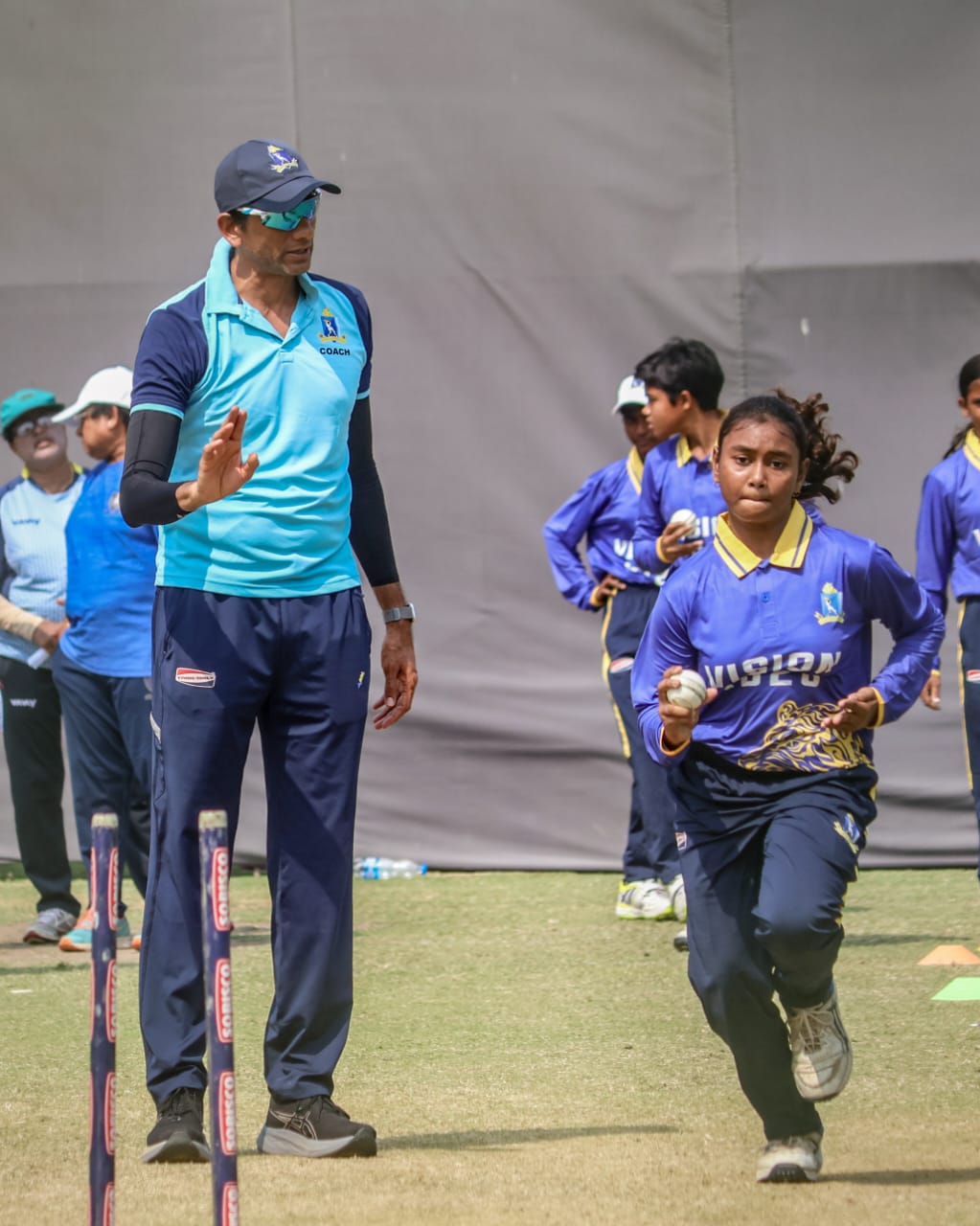
Khabar kolkata sports Desk: The third phase of Vision 2028 got underway today at the JU 2nd Campus Ground, Salt Lake, with the Bengal Under-19 girls attending the first session of the camp that ends on March 24.
While Bengal’s Manoj Tiwary will be the batting coach, the bowling department will be guided by former India pacer Venkatesh Prasad along with Bengal’s Ashok Dinda and spin bowling will be taken care of by Narendra Hirwani. Former India and Bengal women's cricketer Purnima Chowdhury will also guide the girls.
The third phase of the camp is divided into two sessions every day. The first half will be attended by the U19 girls and the second by the U15 girls.
The opening day’s session began with Prasad, Hirwari and Tiwary delivering inspirational and motivation words to the young girls. The trio told the girls to use the camp as a learning experience.
After a brief introduced by the girls, the batters took their stance at the crease and the bowlers prepared for their run-up, by practicing their bowling action. The coaches looked at the proceedings and watched the girls’ practice with hawk eyes. As the session went on, the coaches talked to the talents individually.
The short-term goal of Vision 2028 will be to get the various age group squads ready for the domestic season by improving their skills while the long-term goals will be to nurture the future talents and make them fit for various Bengal age group squads.
20 U19 girls and 23 U15 girls are attending the camp.
Pic Courtesy by: CAB
Our journalist had the privilege of speaking with Commander Mandeep Pasricha
Our journalist had the privilege of speaking with Commander Mandeep Pasricha, a seasoned veteran with 24 years of distinguished service in Indian Navy. He comes with management qualifications from JBIMS, Mumbai University, and Symbiosis Pune. He has also worked with aircraft giants like Boeing, Ilyushin and Israel Aerospace. He is a certified Project Management Professional, with wide exposure in Revenue and Capital procurements and Product Management.
With a wealth of leadership experience, strategic acumen, and an unshakable commitment to excellence, he has successfully navigated the challenging transition from military life to the corporate world. In this candid conversation, he shares invaluable insights, practical advice, and hard-earned lessons for fellow faujis considering their next mission—thriving in the business world.
Fauji to Fauji: The Corporate Transition Playbook – An Interview
Interviewer: Welcome, Cdr Pasricha! There’s always a lot of buzz around military personnel transitioning to the corporate world. Many serving officers are on the fence about making the switch. What’s the most common question you hear from your fellow faujis?
Cdr Pasricha: Oh, I get a range of them! "Will I adjust to the new world order?", "How is corporate life?", "Is there stability at work?", "What do I need to plan before leaving service?"—the list goes on. The transition can feel like stepping into uncharted territory, but trust me, it's nothing a Fauji can't handle!
Interviewer: That’s reassuring! But let's be honest—military life is all about discipline, structure, and a well-defined purpose. The corporate world, on the other hand, is more profit-driven. How does this impact retired personnel?
Cdr Pasricha: Ah, the great shift in purpose! In the military, every mission serves a greater good—national security, saving lives, protecting borders. In the corporate world, success is measured by profits, market shares, and business growth. Many veterans initially struggle to find meaning in their work. The trick is to align yourself with roles that resonate with your core values—leadership development, consulting, or even CSR initiatives. Find your mission within the mission!
Interviewer: Well said! Now, the work culture is another massive change. In the military, hierarchy is everything—orders are followed, no questions asked. But in corporate life, collaboration and debate are encouraged. How do retired officers adapt?
Cdr Pasricha: You nailed it! In the forces, when a command is given, it’s executed—period. In the corporate world, questioning, brainstorming, and debating ideas are the norm. Initially, this can feel chaotic for veterans. My advice? Observe first. Soak in the dynamics. Once you get the hang of it, you’ll see that leadership here is more about influence than authority.
And here’s a pro tip: Instead of giving orders, ask, "What do you think?"—it works wonders!
Interviewer: That’s a gold nugget right there! Another big shift must be decision-making. Military officers are trained to take quick, high-pressure decisions. But the corporate world thrives on stakeholder consensus. Is that a tough adjustment?
Cdr Pasricha: Absolutely! In the military, a delay in decision-making can be life-threatening. In business, it’s all about buy-in from different stakeholders, endless meetings, and navigating office politics. Initially, the pace can be frustrating. But once you learn the game, you’ll see that your ability to make firm, informed decisions is a superpower. Just learn to balance decisiveness with diplomacy.
Interviewer: Speaking of adjustments, work-life balance is another big one. Defence personnel live in a close-knit community. But in corporate life, people clock out and go their own way. How does this impact retired officers?
Cdr Pasricha: Oh, this is a real shocker! In the armed forces, your colleagues are your family. You live together, train together, celebrate together. Then suddenly, you’re in a world where relationships are transactional, and weekend plans are personal. The key is to build new networks—join corporate clubs, alumni groups, or even veteran communities. Find your tribe, and you won’t feel alone!
Interviewer: That makes sense. Now, let’s talk money. The military offers a structured salary, benefits, housing, and medical perks. In corporate life, it’s all about negotiations. How can veterans ensure they get their due?
Cdr Pasricha: Negotiating salaries? That’s foreign territory for most of us! In the forces, our pay scales are fixed. But in corporate life, everything is negotiable. My advice? Do your homework. Know your market value. Speak to other veterans who have transitioned. And don’t undersell yourself—your leadership, discipline, and crisis-management skills are priceless.
Interviewer: What about career progression? In the military, promotions are structured. But in business, growth depends on networking and performance. How do retired personnel adapt to this?
Cdr Pasricha: That’s a mindset shift! In the armed forces, you rise through the ranks over time. In corporate, you must actively chase opportunities—network, take on new challenges, switch functions if needed. It’s more of a jungle gym than a ladder. My tip? Be open to lateral moves; they often lead to bigger roles down the line!
Interviewer: This has been enlightening! Before we wrap up, can you share some tips for faujis planning their corporate transition?
Cdr Pasricha: Of course! Here are my top five:
Upskill yourself – An executive MBA, project management certification, or industry-specific training will make you job-ready.
Leverage veteran networks – Connect with those who have successfully transitioned; they’ll guide you through.
Embrace change – Be open to feedback, learn new skills, and adapt quickly.
Play to your strengths – Leadership, crisis management, discipline—these are gold in the corporate world.
Use specialized agencies – There are organizations that help veterans with job placements, resumes, and career counseling.
Interviewer: This has been an eye-opener! Thank you, Cdr Pasricha, for sharing your insights. One last question—would you say this transition is difficult?
Cdr Pasricha: Difficult? Not at all! Challenging? Yes. But show me a Fauji who doesn’t love a challenge! We’ve conquered tougher terrains—this is just another mission. Plan well, adapt fast, and march forward. The corporate world isn’t ready for the force that’s coming their way!
Interviewer: (Laughs) Well, that’s the spirit! Thanks again, Cdr Pasricha. Wishing all our veterans a smooth and successful transition!
Final Thought: For every Fauji considering the corporate shift, remember: You’re not just a job-seeker—you’re a leader, a strategist, and a problem-solver. The boardroom needs more of your kind. Go, own it!
Why your resume (mostly) doesn’t matter - Nishtha Desai
TEDx Talk | YoutubeMr. Sarabjeet Sachar, founder and CEO of Aspiration Jobs, recently gave an inspiring TEDx talk during TEDxGoldenBridge Studio, sharing new ideas on how value-based connections play a critical role in professional development. The speaker told us that success often does not hinge on resumes or traditional job applications, but rather on building valuable, meaningful relationships that position one on the right path for opportunities to knock.
TEDxGoldenBridge Studio, themed “Semicolon; Pausing to Connect,” brings together a diverse array of speakers and curators to explore the power of intentional pauses and meaningful connections in our lives; has the reputation for providing a platform to ideas that are worth spreading, gave the best platform to this thought-provoking presentation. The proceedings were efficiently planned by Harsh Thakkar (Licensee), Sahaj Tyagi (Co-licensee), Siya Kachhela (Head Curator), Vraj Dangarwala (First Curator), and Yug Desai (Post Production Lead) so that every moment of the event was memorable for everyone in attendance.
The author, Nishtha Desai emphasizes the significance of forming genuine relationships during one's career path. According to her, the emphasis must be on proving oneself, making personal and professional values align with the company mission, and being around people with the same intentions. For her, a career founded on sincere connections is more fulfilling and successful than one focused only on resumes and automated processes.
Crux of the Topic
In his presentation, Sarabjeet Sachar brought forth the revolutionary idea of value-based relationships, breaking from the conventional dependence on resumes in job searching. He identified how the dependence on resumes generated by artificial intelligence and generic keywords tends to derail the recruitment process, making it increasingly difficult for the candidates to get noticed. The actual key to professional success, he contended, is being a problem-solver, not merely a set of credentials.
Details
It started at the age of 21, when a newly graduated student was commuting on a local train in Mumbai. Enthusiastically talking about a dream to have a career in sales, this person was excited about the prospect of meeting people, knowing their problems, and providing tailored solutions. Unaware to them, a regional sales manager from a major pharmaceutical firm happened to overhear the conversation. Influenced by their passion and commitment in their words, the manager went up to the graduate and gave them his business card, inviting them in for an interview. No resume was required; it was the passion and commitment that got them the job.
This was the starting point of a successful career in sales, where the person rose through the ranks to senior levels in well-known companies like Times of India, Indian Express, The Hindu, India Today, and ZTV Network. In all these shifts, the emphasis remained on demonstrating their worth and love, instead of talking of a resume.
The central takeaway here is that the traditional resume may open doors, but it’s the authentic value you bring that will truly walk you through them. Research and preparation are key. Much like a business consultant, job seekers should approach potential employers by understanding their needs and positioning themselves as solution providers. This requires a shift in mindset—viewing the job search process not as a race to submit applications, but as an opportunity to build meaningful, value-driven connections.
The presentation touched on some of the real-life scenarios in which professionals constructed their careers by intentionally concentrating on value-based network construction. Sarabjeet Sachar narrated examples of people such as Amit and Simon, who were able to switch into new fields and gain leadership positions by matching their capabilities with the precise requirements of their potential employers.
This creative strategy is opposite to the conventional thinking of writing a resume based on a job description. Sachar emphasized that employers are not seeking flawless resumes but those who can provide solutions to their issues. By establishing these connections via networking and reciprocal value, professionals can tap into job opportunities that are not listed on conventional job boards.
Conclusion
As Sarabjeet Sachar finished speaking, he challenged the audience to change their career development mindset. Rather than just concentrating on resumes, professionals need to work towards building deep, genuine relationships founded on common values. These will open doors to opportunities and drive career progression in a more profound manner.
The TEDxGoldenBridge Studio event gave a new insight into job seeking and career development, urging working professionals to aim at establishing value-based relationships to thrive in the competitive job market of today.
*Mumbai City FC brush past Chennaiyin in Kalinga Super Cup*
Sports

BHUBANESWAR : Lallianzuala Chhangte delivered a captain’s performance with a dazzling brace as Mumbai City FC breezed past Chennaiyin FC 4-0 in a dominant Round of 16 encounter of the 2025 Kalinga Super Cup at the Kalinga Stadium on Wednesday, April 23, 2025. The first half ended 1-0.
Nikolaos Karelis (43’) scored the first goal for Mumbai City FC at the stroke of half time before Lallianzuala Chhangte (64’, 86’) stole the show with his two goals. Substitute Bipin Singh (90’) capped off the win with a strike in the last minute.
Mumbai City FC, still smarting from a heavy 0-5 defeat against Bengaluru FC in the ISL knockout rounds, responded in emphatic fashion to book their place in the Kalinga Super Cup quarter-finals. Their opponents, Chennaiyin FC, had finished a disappointing 11th in the ISL, and their Super Cup journey came to an end after another underwhelming performance.
From the opening whistle, Mumbai City were on the front foot. The attacking trio of Chhangte, Karelis, and Jorge Ortiz looked sharp, with intricate passing and excellent movement that repeatedly exposed gaps in the Chennaiyin backline.
Chhangte nearly opened the scoring early on when he latched onto a defensive error, glided past his marker and unleashed a shot towards the far post only to see it come back off the woodwork.
Chennaiyin struggled to settle into the game and were denied what looked like a potential penalty after Daniel Chima Chukwu was brought down in the box by Vikram Pratap Singh, but the referee waved play on.
The breakthrough finally came in the 43rd minute. A half-cleared corner fell kindly to Hitesh Sharma, who lofted a teasing ball into the box. Chennaiyin goalkeeper Mohammad Nawaz was a tad late in coming out to affect a save and Nikolaos Karelis made no mistake, nodding home from close range to put the Islanders ahead at the break.
After the interval, Mumbai City resumed their control. Ortiz and Chhangte combined beautifully to carve open chances, and the latter came close again before Chennaiyin nearly found an equaliser. Lukas Brambilla danced past Mumbai City goalkeeper TP Rehenesh and seemed destined to score, but Mehtab Singh’s goal-line clearance denied Chennaiyin a lifeline.
That moment proved to be the turning point. In the 64th minute, Ortiz once again danced past his marker and slipped Karelis in behind. The Greek forward’s effort across goal wasn’t the cleanest, but Chhangte was there at the far post to tap it into an open net and double Mumbai City’s lead.
Chhangte struck again in the 86th minute with a touch of class. Ortiz played a sublime outside-of-the-boot flick to send him through. The winger cut inside on his favoured left foot and curled a low shot past the goalkeeper to make it 3-0.
In the last minute of the game, Chhangte turned provider. A delicate scooped pass found Bipin Singh in the box, who brushed aside pressure from Mandar Rao Desai and calmly slotted home to complete the rout.
Lallianzuala Chhangte was presented the Kalinga Player of the Match award
Why your resume (mostly) doesn’t matter - Nishtha Desai
TEDx Talk | Youtube Mr. Sarabjeet Sachar, founder and CEO of Aspiration Jobs, recently gave an inspiring TEDx talk during TEDxGoldenBridge Studio, sharing new ideas on how value-based connections play a critical role in professional development. The speaker told us that success often does not hinge on resumes or traditional job applications, but rather on building valuable, meaningful relationships that position one on the right path for opportunities to knock.
TEDxGoldenBridge Studio, themed “Semicolon; Pausing to Connect,” brings together a diverse array of speakers and curators to explore the power of intentional pauses and meaningful connections in our lives; has the reputation for providing a platform to ideas that are worth spreading, gave the best platform to this thought-provoking presentation. The proceedings were efficiently planned by Harsh Thakkar (Licensee), Sahaj Tyagi (Co-licensee), Siya Kachhela (Head Curator), Vraj Dangarwala (First Curator), and Yug Desai (Post Production Lead) so that every moment of the event was memorable for everyone in attendance.
The author, Nishtha Desai emphasizes the significance of forming genuine relationships during one's career path. According to her, the emphasis must be on proving oneself, making personal and professional values align with the company mission, and being around people with the same intentions. For her, a career founded on sincere connections is more fulfilling and successful than one focused only on resumes and automated processes.
Crux of the Topic
In his presentation, Sarabjeet Sachar brought forth the revolutionary idea of value-based relationships, breaking from the conventional dependence on resumes in job searching. He identified how the dependence on resumes generated by artificial intelligence and generic keywords tends to derail the recruitment process, making it increasingly difficult for the candidates to get noticed. The actual key to professional success, he contended, is being a problem-solver, not merely a set of credentials.
Details
It started at the age of 21, when a newly graduated student was commuting on a local train in Mumbai. Enthusiastically talking about a dream to have a career in sales, this person was excited about the prospect of meeting people, knowing their problems, and providing tailored solutions. Unaware to them, a regional sales manager from a major pharmaceutical firm happened to overhear the conversation. Influenced by their passion and commitment in their words, the manager went up to the graduate and gave them his business card, inviting them in for an interview. No resume was required; it was the passion and commitment that got them the job.
This was the starting point of a successful career in sales, where the person rose through the ranks to senior levels in well-known companies like Times of India, Indian Express, The Hindu, India Today, and ZTV Network. In all these shifts, the emphasis remained on demonstrating their worth and love, instead of talking of a resume.
The central takeaway here is that the traditional resume may open doors, but it’s the authentic value you bring that will truly walk you through them. Research and preparation are key. Much like a business consultant, job seekers should approach potential employers by understanding their needs and positioning themselves as solution providers. This requires a shift in mindset—viewing the job search process not as a race to submit applications, but as an opportunity to build meaningful, value-driven connections.
The presentation touched on some of the real-life scenarios in which professionals constructed their careers by intentionally concentrating on value-based network construction. Sarabjeet Sachar narrated examples of people such as Amit and Simon, who were able to switch into new fields and gain leadership positions by matching their capabilities with the precise requirements of their potential employers.
This creative strategy is opposite to the conventional thinking of writing a resume based on a job description. Sachar emphasized that employers are not seeking flawless resumes but those who can provide solutions to their issues. By establishing these connections via networking and reciprocal value, professionals can tap into job opportunities that are not listed on conventional job boards.
Conclusion
As Sarabjeet Sachar finished speaking, he challenged the audience to change their career development mindset. Rather than just concentrating on resumes, professionals need to work towards building deep, genuine relationships founded on common values. These will open doors to opportunities and drive career progression in a more profound manner.
The TEDxGoldenBridge Studio event gave a new insight into job seeking and career development, urging working professionals to aim at establishing value-based relationships to thrive in the competitive job market of today.
*Vision 2028 fourth phase begins with U-16, U-19 boys camps*
Sports

Khabar kolkata sports Desk: The fourth phase of Vision 2028 got underway today at the JU 2nd Campus Ground, Salt Lake, with the Bengal Under-16 and Under-19 boys attending the camps.
Bengal’s Manoj Tiwary will be the batting coach, the bowling department will be guided by Ashok Dinda.
Other coaches Dattatreya Mukherjee, Ajay Verma and Arindam Das also guided the boys.
The fourth phase of the camp is divided into two sessions every day.
The opening day’s session began with Tiwary and Dinda delivering inspirational and motivation words to the young boys. The duo told the boys to use the camp as a learning experience.
The batters took their stance at the crease and the bowlers prepared for their run-up, by practicing their bowling action. The coaches looked at the proceedings and watched the boys’ practice with hawk eyes. As the session went on, the coaches talked to the talents individually.
The short-term goal of Vision 2028 will be to get the various age group squads ready for the domestic season by improving their skills while the long-term goals will be to nurture the future talents and make them fit for various Bengal age group squads.
Pic Courtesy by: CAB
तबाही के बाद शेयर मार्केट में लौटी रौनक, सेंसेक्स 1100 अंक चढ़ा, निफ्टी भी उछला

#share_market_jumps_sensex_and_nifty_open_on_green_line
शेयर मार्केट में रौनक लौट आई है। सेंसेक्स 1100 अंक बढ़ा है तो निफ्टी 22 हजार 500 अंक पर खुला है।आज मंगलवार को मार्केट में आई बढ़त ने निवेशकों को मुस्कुराने का मौका दे दिया। शेयर मार्केट में यह तेजी एशियाई बाजार में बढ़त के कारण आई है।इससे पहले सोमवार को मार्केट बुरी तरह से धड़ाम हुआ था।
शेयर बाजार में सोमवार के दिन भयंकर बिकवाली के बाद आज यानी मंगलवार को मार्केट में उछाल देखने को मिला। दलाल स्ट्रीट पर सेंसेक्स की 30 कंपनियों में 29 में तेजी दिखी।मंगलवार को सेंसेक्स 1175.90 की बढ़त के साथ 74,313.80 अंक पर खुला। वहीं निफ्टी में भी तेजी आई। यह 390 अंक से ज्यादा के साथ 22,446.75 पर खुला। इससे पहले सोमवार को मार्केट में सेंसेक्स 2226.79 अंकों की गिरावट के साथ 73137.90 पर बंद हुआ था। वहीं निफ्टी में भी 900 अंकों से ज्यादा की गिरावट आई थी। लेकिन मंगलवार को आई तेजी ने निवेशकों के डर को काफी हद तक दूर किया।
इससे पहले वैश्विक व्यापार युद्ध की चिंता और अमेरिका में मंदी की बढ़ती आशंकाओं के बीच सोमवार को पूरी दुनिया के शेयर बाजार में भारी बिकवाली दिखी थी। भारतीय बाजार भी इससे अछूता नहीं रहा था और सेंसेक्स व निफ्टी जैसे प्रमुख सूचकांक बड़ी गिरावट के साथ बंद हुए थे। इस दौरान 30 शेयरों के बेंचमार्क सूचकांक सेंसेक्स में बीते10 महीनों में एक दिन की सबसे बड़ी गिरावट दर्ज की गई थी।
इस दौरान एशियाई बाजारों में बढ़ोतरी देखी गई। जापान का निक्केई 225 शेयर सूचकांक एक दिन पहले 8 प्रतिशत गिरा, लेकिन मंगलवार को इसमें 5.5 प्रतिशत की तेजी देखी गई। दक्षिण कोरिया के कोस्पी में भी 2 प्रतिशत की वृद्धि हुई। न्यूजीलैंड और ऑस्ट्रेलिया के बाजारों में भी तेजी देखी गई।
Ghibli ट्रेंड ने इंटरनेट पर मचाई धूम, OpenAI के CEO ने जानिए क्या दी अहम जानकारी?

डेस्क:–इन दिनों सोशल मीडिया पर एक नया ट्रेंड देखने को मिल रहा है और वह है "Ghibli" इमेज का। सेलिब्रिटी, क्रिकेटर और राजनेता जैसे कई बड़े नामों की Ghibli स्टाइल इमेज इन दिनों वायरल हो रही हैं। ये इमेज सोशल मीडिया के लगभग सभी प्लेटफॉर्म्स पर छाई हुई हैं और लोग इनका जमकर इस्तेमाल कर रहे हैं।
हालांकि इस बढ़ते ट्रेंड के कारण OpenAI की सर्वर पर दबाव बढ़ गया है जिससे कंपनी को कुछ समस्याओं का सामना करना पड़ रहा है। इसके चलते OpenAI के CEO Sam Altman ने खुद आगे आकर एक महत्वपूर्ण अपडेट साझा किया। उन्होंने बताया कि Ghibli इमेज की पॉपुलैरिटी की वजह से कंपनी को सर्वर पर भारी दबाव का सामना करना पड़ रहा है और इससे कुछ उत्पादों की लॉन्चिंग में देरी हो सकती है।
Sam Altman ने अपने X (पूर्व Twitter) अकाउंट पर एक पोस्ट के जरिए बताया कि Ghibli इमेज की बढ़ती मांग और पॉपुलैरिटी के कारण सर्वर पर काफी दबाव बन गया है। इसके चलते OpenAI को कुछ नई सुविधाओं और प्रोडक्ट्स को लॉन्च करने में देरी हो सकती है। साथ ही उन्हें अपनी सेवा में कुछ स्लोनेस का भी सामना करना पड़ सकता है। Altman ने यह भी बताया कि कुछ मामलों में Ghibli इमेज तैयार करने में वक्त भी लग रहा है और कभी-कभी 1 मिनट तक का समय भी लिया जा रहा है।
OpenAI के CEO Sam Altman ने स्पष्ट किया कि इस दबाव को मैनेज किया जा रहा है और सब कुछ नियंत्रण में है। हालांकि Ghibli की बढ़ती मांग के कारण कुछ नई रिलीज़ में देरी हो सकती है और यूज़र्स को स्लो सर्विस का सामना करना पड़ सकता है।
*Ghibli क्या है?*
Ghibli एक खास प्रकार की आर्ट स्टाइल है जिसमें पेंटिंग जैसी सॉफ्ट कलर टोन, बेहतरीन डिटेलिंग और मैजिकल थीम का इस्तेमाल होता है। यह इमेजेज देखने में बहुत सुंदर और आकर्षक लगती हैं। OpenAI के नए टूल्स की मदद से अब इस खास आर्ट स्टाइल को आसानी से रीक्रिएट किया जा सकता है।
*Ghibli का जापान से कनेक्शन*
Ghibli स्टाइल की शुरुआत जापान की एक मशहूर एनीमेशन कंपनी से हुई थी जिसे "Studio Ghibli" कहा जाता है। इस स्टूडियो की स्थापना प्रसिद्ध फिल्म निर्माता हयाओ मियाजाकी ने की थी। Studio Ghibli को अपनी शानदार फिल्मों जैसे Spirited Away, My Neighbor Totoro और Kiki's Delivery Service के लिए जाना जाता है। इन फिल्मों का हर दृश्य Ghibli स्टाइल में होता है जो दर्शकों को एक जादुई और कल्पनाशील दुनिया में ले जाता है।
वहीं इस प्रकार Ghibli ट्रेंड अब इंटरनेट पर एक नई हलचल मचा रहा है और OpenAI की सर्वर पर दबाव भी बढ़ा है। हालांकि Sam Altman ने आश्वासन दिया कि कंपनी इस समस्या पर काम कर रही है और जल्द ही इस पर काबू पा लिया जाएगा।
चैटजीपीटी ने घिबली स्टाइल फोटो जेनरेट करने पर लिया बड़ा फैसला, यूजर्स के लिए बुरी खबर
#openai_changed_the_rules_for_ghibli_style_photos

ओपनएआई के चैटजीपीटी ने एक नया टूल लॉन्च कर इंटरनेट पर तूफान खड़ा कर दिया। हालांकि, अब इसने कंपनी की ही नींद उड़ा दी है। इन दिनों सोशल मीडिया पर घिबली स्टाइल की तस्वीरें की भरमार देखी जा रही हैं। सोशल मीडिया यूजर्स को अब इन तस्वीरों के माध्यम से अपने आप को देखना पसंद करने लगे लगे हैं। पिछले 2-3 दिन से सोशल मीडिया पर घिबली-स्टाइल फोटो की बाढ़ आई हुई है। इसी बीच ओपनएआई के चैटजीपीटी ने अपनी स्टूडियो घिबली-स्टाइल की तस्वीरों को लेकर अपनी नीति में अहम बदलाव किया है।
नए नियम के मुताबिक अब यूजर्स घिबली-स्टाइल की तस्वीरें बनाने के लिए रियल वर्ल्ड की तस्वीरों का उपयोग नहीं कर सकते। इसका साफ-साफ मतलब है कि अब आप ओपनएआई के चैटजीपीटी के माध्यम से कोई भी असल व्यक्ति या तस्वीर को देखकर घिबली-स्टाइल में तस्वीर नहीं बना सकता। जब भी आप अब चैटजीपीटी के माध्यम से तस्वीर बनाने की कोशिश करेंगे तो इसके लिए चैटजीपीटी इमेज जनरेटर ने एक नया संदेश दिखाना शुरू किया है, जिसमें कहा गया है कि अब वह किसी असल व्यक्ति की तस्वीर से घिबली स्टाइल की तस्वीर नहीं बना सकता।
फ्री और पेड यूजर्स पर लगाई लिमिट
यही नहीं, चैटजीपीटी की टीम इसके अलावा भी कुछ बदलाव कर रही है। ओपनएआई के सीईओ सैम आल्टमैन ने बताया कि चैटजीपीटी के फ्री यूजर्स को अब हर दिन 3 इमेज बनाने का मौका मिलेगा। हालांकि, ये एक टेंपरेरी सॉल्यूशन है और टीम इस पर काम कर रही है। अब एक दिन में चैटजीपीटी के फ्री यूजर्स लिमिटेड फोटोज ही बना सकेंगे। इसमें पेड यूजर्स को भी लिमिट का सामना करना पड़ेगा।
फ्री यूजर्स को करना होगा इंतजार
इसके अलावा, ओपनएआई ने अपनी इमेज जनरेटर सेवा को मुफ्त यूजर्स के लिए रोलआउट करने में देरी की घोषणा की है, क्योंकि इसे लेकर अधिक मांग आ रही है। ओपनएआई के सीईओ सैम ऑल्टमैन ने ट्विटर पर कहा कि इस सेवा की लोकप्रियता उम्मीद से ज्यादा बढ़ गई है, जिससे मुफ्त यूजर्स के लिए इसमें कुछ समय की देरी हो रही है।
चैटजीपीटी डाउन: घिबली स्टाइल फोटो की वजह से सैम आल्टमैन की बढ़ी मुसीबत!
Ghibli style आपको चारों तरफ देखने को मिल रहा है. हर कोई अपनी फोटो को घिबली स्टाइल में बनाकर अपलोड कर रहा है. दिन दिन में ये ट्रेंड काफी पॉपलुर हो गया है. लेकिन इसकी वजह से ओपनएआई कंपनी के मालिक सैम आल्टमैन का सुकून छीन लिया है. एआई प्लेटफॉर्म ChatGPT दुनिया भर में डाउन हो गया है. कई यूजर्स इसे एक्सेस नहीं कर पा रहे हैं. यूजर्स ने स्टूडियो घिबली स्टाइल एनिमेटेड फोटो बनाने के लिए चैटबॉट का काफी इस्तेमाल कर लिया है. चैटजीपीटी पर एक बाढ़ सी आ गई है जिसकी वजह से चैटजीपीटी GPUs पर असर पड़ रहा है.

डाउनडिटेक्टर की रिपोर्ट के मुताबिक, यूजर्स को चैटजीपीटी पर Ghibli इमेज बनाने में दिक्कत का सामना करना पड़ रहा है. 229 लोगों ने शिकायत दर्ज की हैं. जिनमें से करीब 59 प्रतिशत कंप्लेंट्स चैटजीपीटी के लिए थी. ज्यादातर यूजर्स चैटजीपीटी को एक्सेस नहीं कर पा रहे हैं.
Sam Altman ने यूजर्स से की अपील
OpenAI के सीईओ Sam Altman ने X पर एक पोस्ट के जरिए यूजर्स से इस फीचर का इस्तेमाल कम करने की अपील की है. Altman ने X पर पोस्ट करते हुए लिखा कि क्या आप लोग इमेज जेनरेट करना थोड़ा कम कर सकते हैं? ये बहुत ज्यादा हो गया है. हमारी टीम को नींद की ज़रूरत है. उन्होंने ये भी कहा कि उनकी टीम के लिए ये सिचुएशन कठिन हो गई है और उन्हें कुछ राहत की जरूरत है.
चैटजीपीटी पर लगेगी लिमिट?
आल्टमैन ने चैटजीपीटी पर दिन में तीन फोटो जेनरेट करने की लिमिट की बात कही है. इसके जवाब ने एक यूजर ने सुझाव दिया कि मॉडल पर लिमिट लगान से यूजर्स निराश हो सकते हैं. Altman ने जवाब इसके जवाब में कहा कि, हम मॉडल की कैपेसिटी को कम करने के बजाय, इसका उल्टा करेंगे, लेकिन फिर भी थोड़ा शांत हो जाइए.
चैटजीपीटी रिकवर
ग्लोबल आउटेज के बाद चैटजीपीटी रिकवर हो गया है. लेकिन कुछ टाइम के लिए प्लेटफॉर्म की कैपेसिटी को कम कर दिया गया है. इमेज जेनरेशन पर लिमिट सेट कर दी गई है.
सैम आल्टमैन के मुताबिक, चैटजीपीटी पर काम करने वाली टीम दुनिया की सबसे बेहतरीन टीम है. जो दो- ढ़ाई साल पहले से दुनिया की सबसे बड़ी वेबसाइट बनाने की राह पर काम कर रही है.
*Vision 2028 resumes with U-19, U-15 girls’ camp*
Sports

Khabar kolkata sports Desk: The third phase of Vision 2028 got underway today at the JU 2nd Campus Ground, Salt Lake, with the Bengal Under-19 girls attending the first session of the camp that ends on March 24.
While Bengal’s Manoj Tiwary will be the batting coach, the bowling department will be guided by former India pacer Venkatesh Prasad along with Bengal’s Ashok Dinda and spin bowling will be taken care of by Narendra Hirwani. Former India and Bengal women's cricketer Purnima Chowdhury will also guide the girls.
The third phase of the camp is divided into two sessions every day. The first half will be attended by the U19 girls and the second by the U15 girls.
The opening day’s session began with Prasad, Hirwari and Tiwary delivering inspirational and motivation words to the young girls. The trio told the girls to use the camp as a learning experience.
After a brief introduced by the girls, the batters took their stance at the crease and the bowlers prepared for their run-up, by practicing their bowling action. The coaches looked at the proceedings and watched the girls’ practice with hawk eyes. As the session went on, the coaches talked to the talents individually.
The short-term goal of Vision 2028 will be to get the various age group squads ready for the domestic season by improving their skills while the long-term goals will be to nurture the future talents and make them fit for various Bengal age group squads.
20 U19 girls and 23 U15 girls are attending the camp.
Pic Courtesy by: CAB
Our journalist had the privilege of speaking with Commander Mandeep Pasricha
Our journalist had the privilege of speaking with Commander Mandeep Pasricha, a seasoned veteran with 24 years of distinguished service in Indian Navy. He comes with management qualifications from JBIMS, Mumbai University, and Symbiosis Pune. He has also worked with aircraft giants like Boeing, Ilyushin and Israel Aerospace. He is a certified Project Management Professional, with wide exposure in Revenue and Capital procurements and Product Management.
With a wealth of leadership experience, strategic acumen, and an unshakable commitment to excellence, he has successfully navigated the challenging transition from military life to the corporate world. In this candid conversation, he shares invaluable insights, practical advice, and hard-earned lessons for fellow faujis considering their next mission—thriving in the business world.
Fauji to Fauji: The Corporate Transition Playbook – An Interview
Interviewer: Welcome, Cdr Pasricha! There’s always a lot of buzz around military personnel transitioning to the corporate world. Many serving officers are on the fence about making the switch. What’s the most common question you hear from your fellow faujis?
Cdr Pasricha: Oh, I get a range of them! "Will I adjust to the new world order?", "How is corporate life?", "Is there stability at work?", "What do I need to plan before leaving service?"—the list goes on. The transition can feel like stepping into uncharted territory, but trust me, it's nothing a Fauji can't handle!
Interviewer: That’s reassuring! But let's be honest—military life is all about discipline, structure, and a well-defined purpose. The corporate world, on the other hand, is more profit-driven. How does this impact retired personnel?
Cdr Pasricha: Ah, the great shift in purpose! In the military, every mission serves a greater good—national security, saving lives, protecting borders. In the corporate world, success is measured by profits, market shares, and business growth. Many veterans initially struggle to find meaning in their work. The trick is to align yourself with roles that resonate with your core values—leadership development, consulting, or even CSR initiatives. Find your mission within the mission!
Interviewer: Well said! Now, the work culture is another massive change. In the military, hierarchy is everything—orders are followed, no questions asked. But in corporate life, collaboration and debate are encouraged. How do retired officers adapt?
Cdr Pasricha: You nailed it! In the forces, when a command is given, it’s executed—period. In the corporate world, questioning, brainstorming, and debating ideas are the norm. Initially, this can feel chaotic for veterans. My advice? Observe first. Soak in the dynamics. Once you get the hang of it, you’ll see that leadership here is more about influence than authority.
And here’s a pro tip: Instead of giving orders, ask, "What do you think?"—it works wonders!
Interviewer: That’s a gold nugget right there! Another big shift must be decision-making. Military officers are trained to take quick, high-pressure decisions. But the corporate world thrives on stakeholder consensus. Is that a tough adjustment?
Cdr Pasricha: Absolutely! In the military, a delay in decision-making can be life-threatening. In business, it’s all about buy-in from different stakeholders, endless meetings, and navigating office politics. Initially, the pace can be frustrating. But once you learn the game, you’ll see that your ability to make firm, informed decisions is a superpower. Just learn to balance decisiveness with diplomacy.
Interviewer: Speaking of adjustments, work-life balance is another big one. Defence personnel live in a close-knit community. But in corporate life, people clock out and go their own way. How does this impact retired officers?
Cdr Pasricha: Oh, this is a real shocker! In the armed forces, your colleagues are your family. You live together, train together, celebrate together. Then suddenly, you’re in a world where relationships are transactional, and weekend plans are personal. The key is to build new networks—join corporate clubs, alumni groups, or even veteran communities. Find your tribe, and you won’t feel alone!
Interviewer: That makes sense. Now, let’s talk money. The military offers a structured salary, benefits, housing, and medical perks. In corporate life, it’s all about negotiations. How can veterans ensure they get their due?
Cdr Pasricha: Negotiating salaries? That’s foreign territory for most of us! In the forces, our pay scales are fixed. But in corporate life, everything is negotiable. My advice? Do your homework. Know your market value. Speak to other veterans who have transitioned. And don’t undersell yourself—your leadership, discipline, and crisis-management skills are priceless.
Interviewer: What about career progression? In the military, promotions are structured. But in business, growth depends on networking and performance. How do retired personnel adapt to this?
Cdr Pasricha: That’s a mindset shift! In the armed forces, you rise through the ranks over time. In corporate, you must actively chase opportunities—network, take on new challenges, switch functions if needed. It’s more of a jungle gym than a ladder. My tip? Be open to lateral moves; they often lead to bigger roles down the line!
Interviewer: This has been enlightening! Before we wrap up, can you share some tips for faujis planning their corporate transition?
Cdr Pasricha: Of course! Here are my top five:
Upskill yourself – An executive MBA, project management certification, or industry-specific training will make you job-ready.
Leverage veteran networks – Connect with those who have successfully transitioned; they’ll guide you through.
Embrace change – Be open to feedback, learn new skills, and adapt quickly.
Play to your strengths – Leadership, crisis management, discipline—these are gold in the corporate world.
Use specialized agencies – There are organizations that help veterans with job placements, resumes, and career counseling.
Interviewer: This has been an eye-opener! Thank you, Cdr Pasricha, for sharing your insights. One last question—would you say this transition is difficult?
Cdr Pasricha: Difficult? Not at all! Challenging? Yes. But show me a Fauji who doesn’t love a challenge! We’ve conquered tougher terrains—this is just another mission. Plan well, adapt fast, and march forward. The corporate world isn’t ready for the force that’s coming their way!
Interviewer: (Laughs) Well, that’s the spirit! Thanks again, Cdr Pasricha. Wishing all our veterans a smooth and successful transition!
Final Thought: For every Fauji considering the corporate shift, remember: You’re not just a job-seeker—you’re a leader, a strategist, and a problem-solver. The boardroom needs more of your kind. Go, own it!


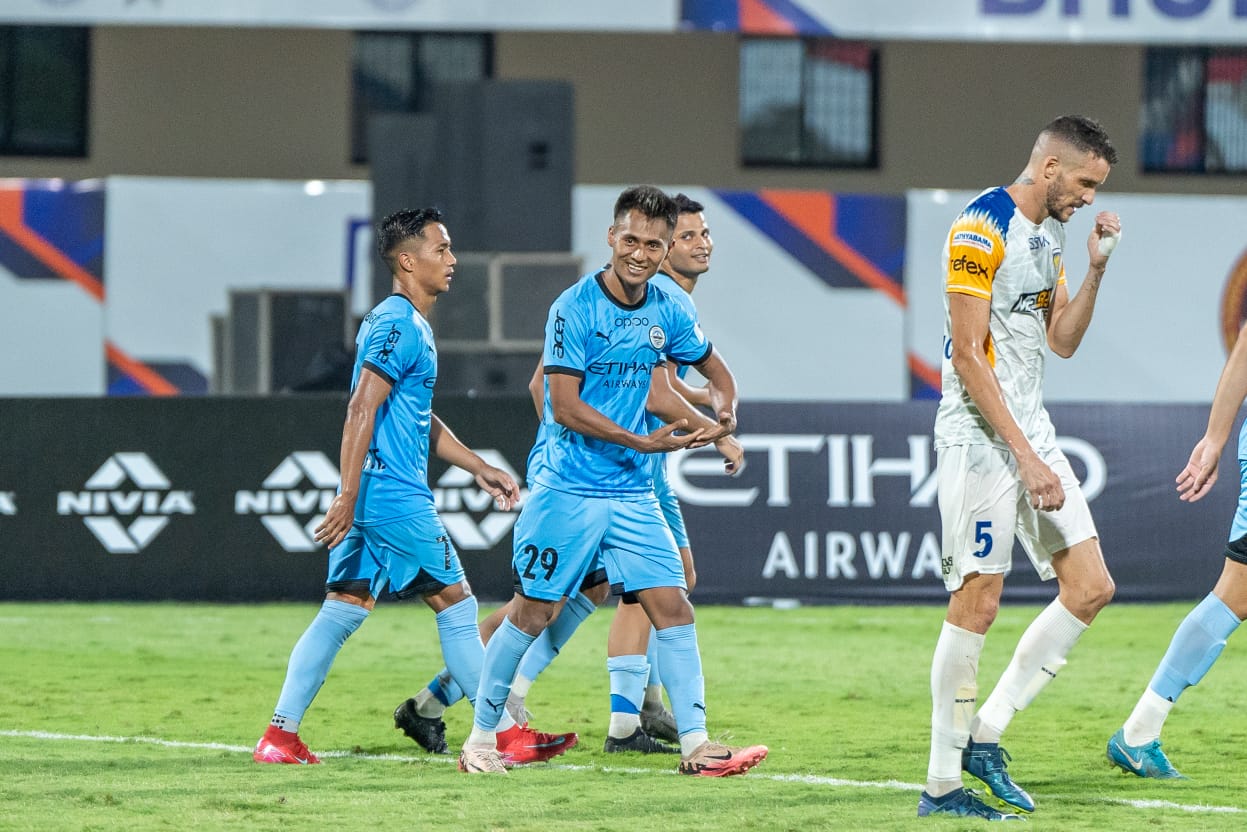




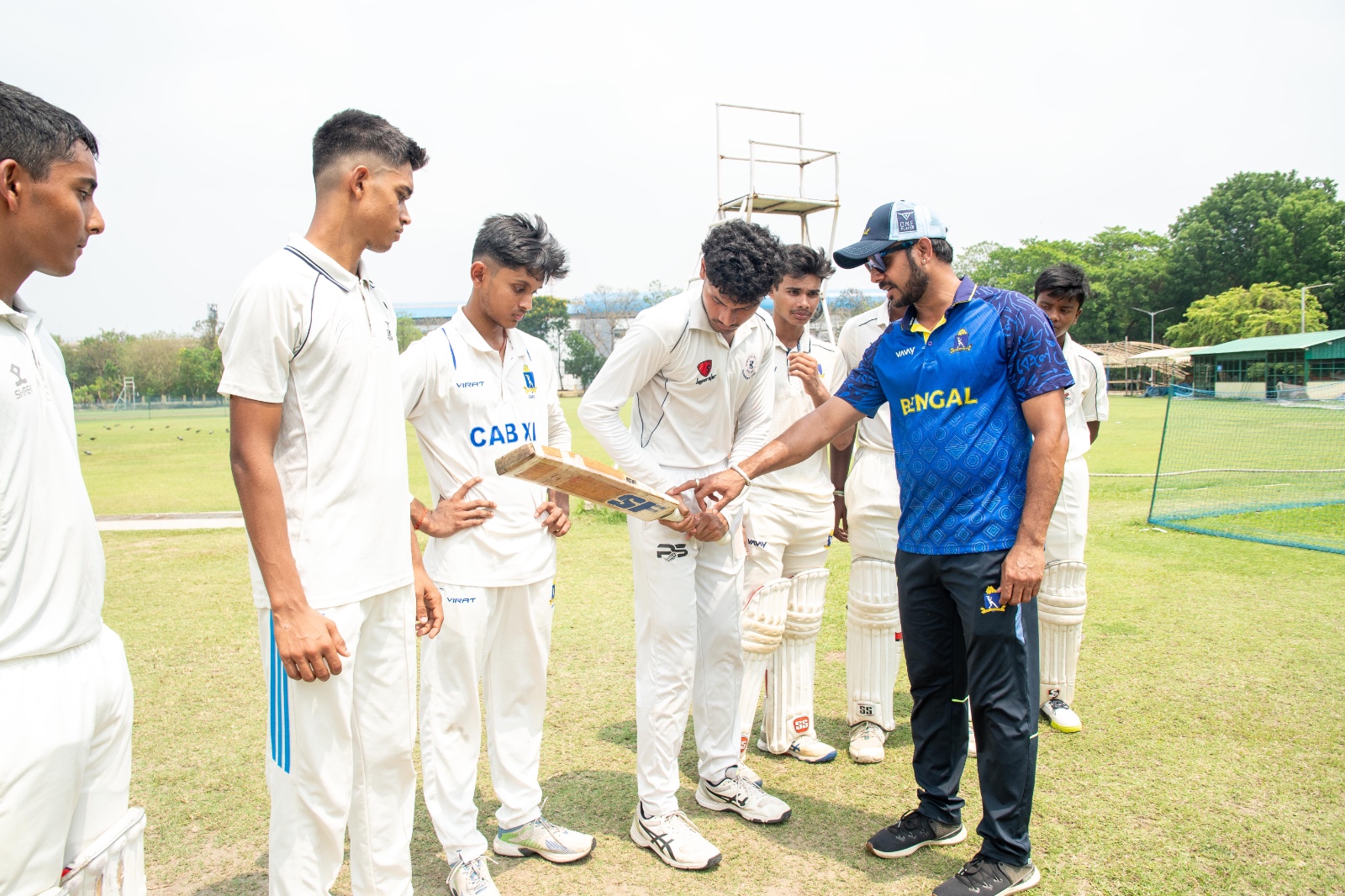
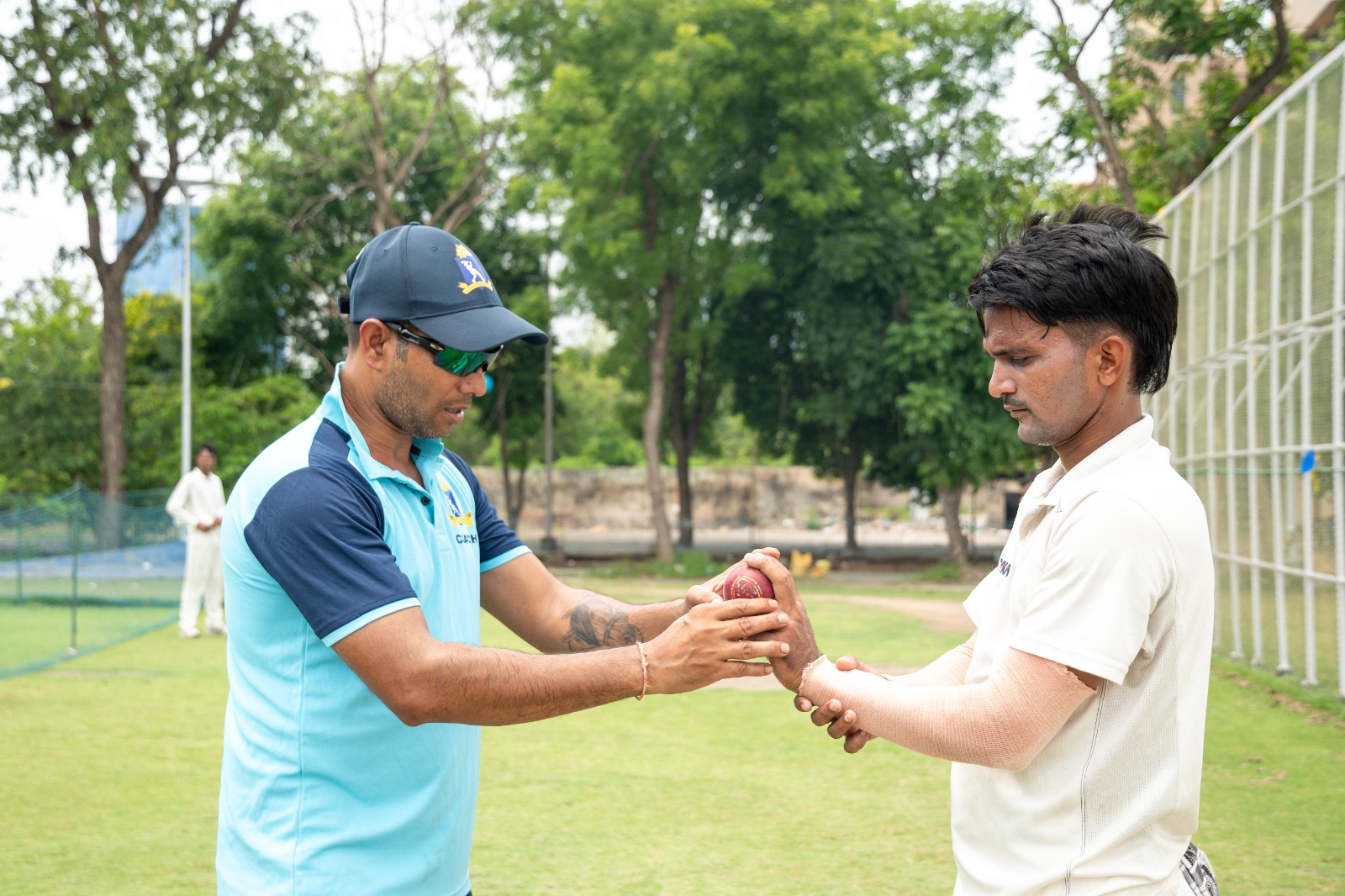

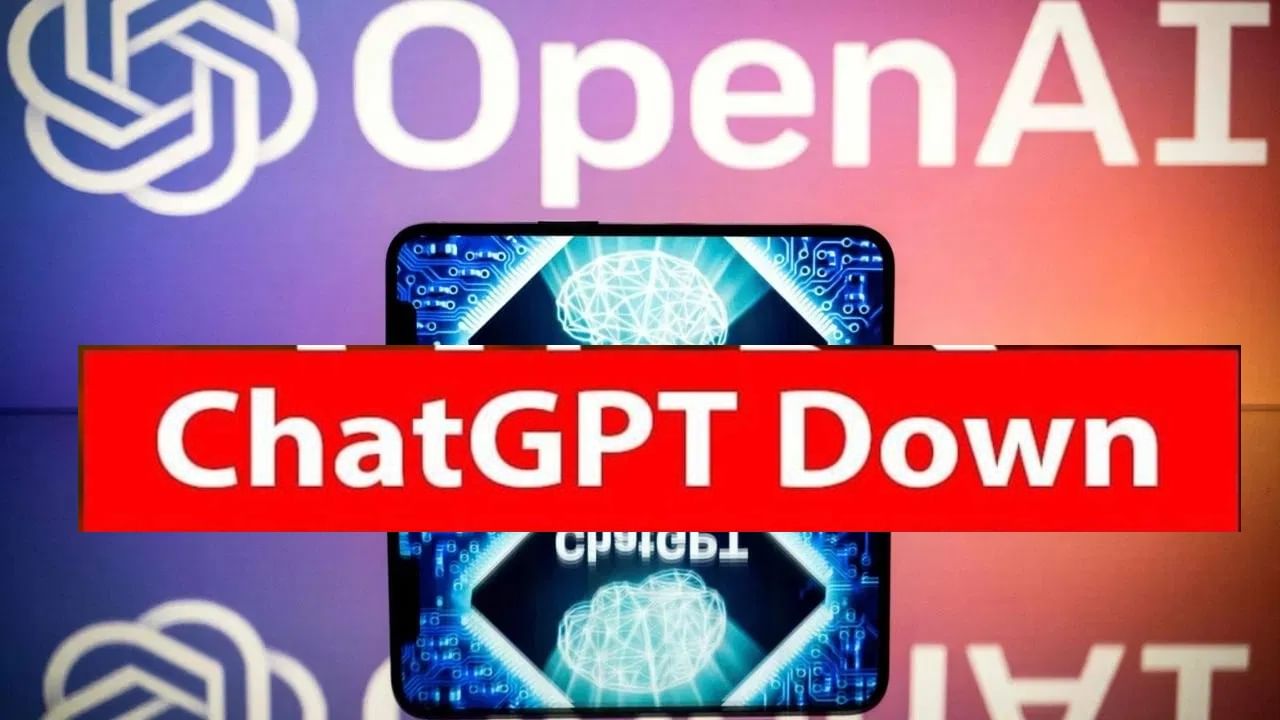
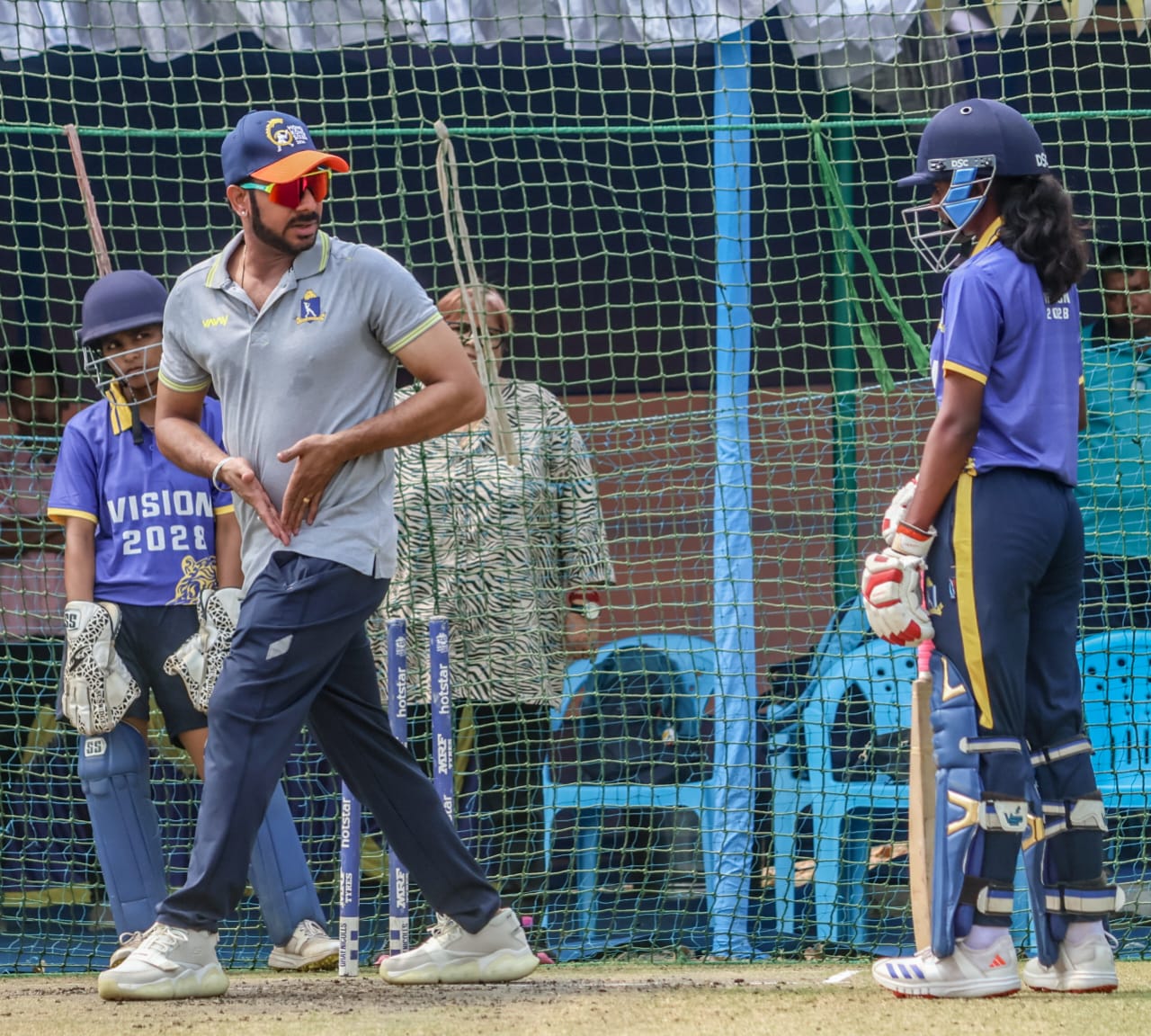
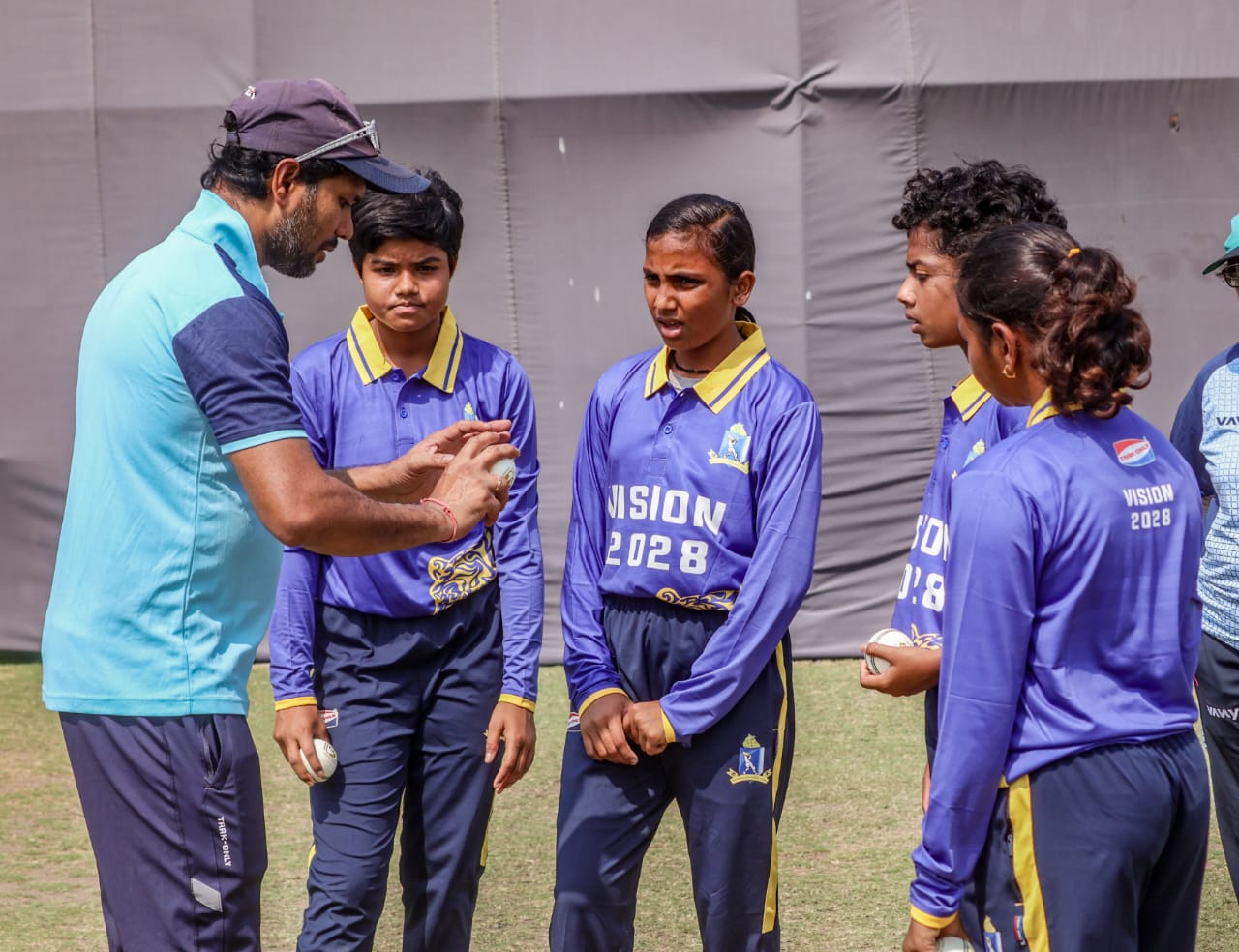
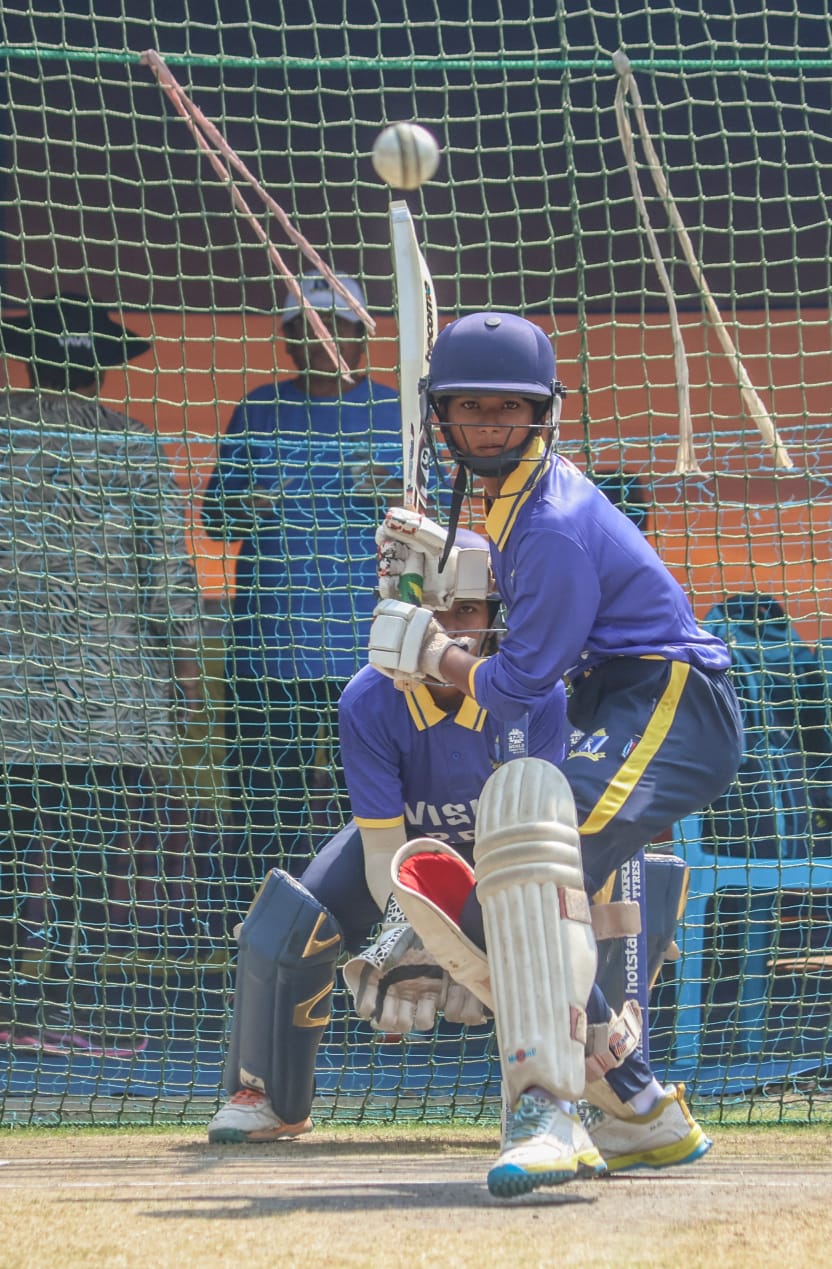
Apr 24 2025, 19:51
- Whatsapp
- Facebook
- Linkedin
- Google Plus
0- Whatsapp
- Facebook
- Linkedin
- Google Plus
0.3k